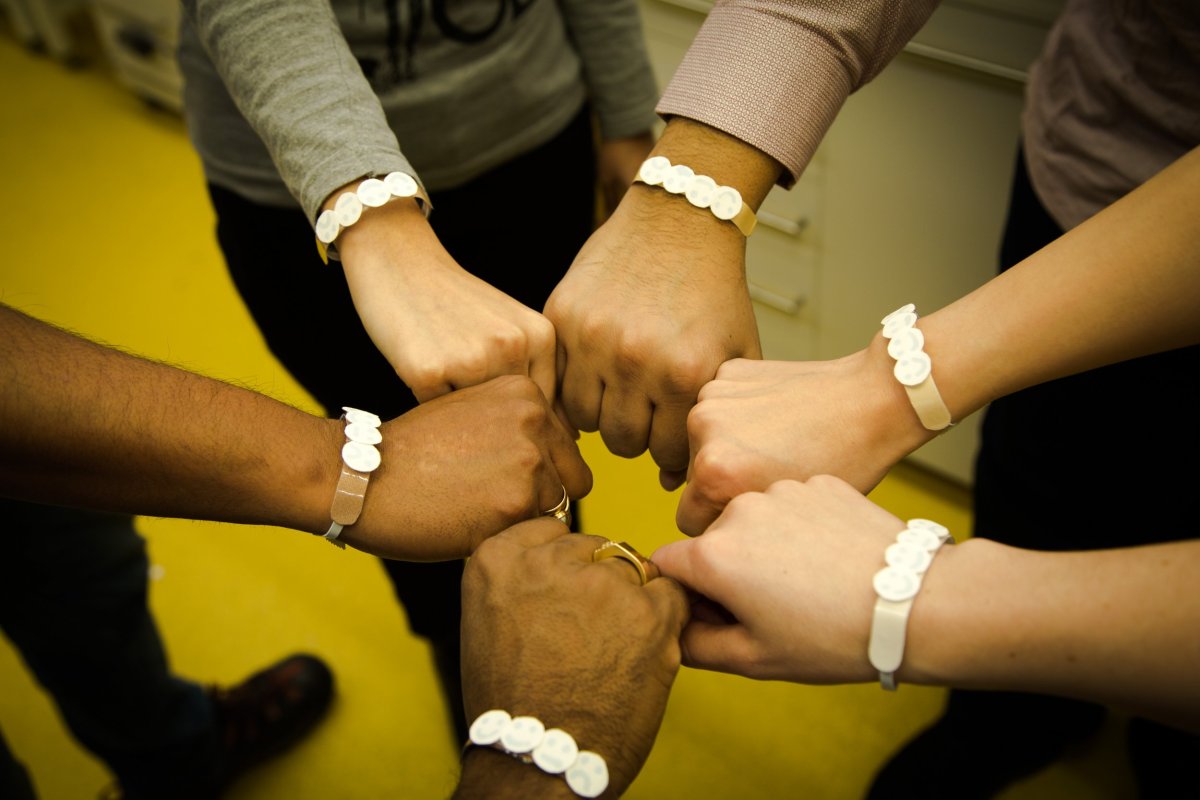Scientists have developed a sensor that tracks the level of dangerous ultraviolet radiation (UVR) a person is exposed to, providing a tool that has the potential to help prevent skin cancer.
The sensors, or dosimeters, use a special photosensitive ink that changes color according to how much UVR it has been exposed to, providing a way to visually monitor skin exposure. The ink reacts to UVR even at low doses, according to the inventors at RMIT University, in Melbourne, Australia. The team published their findings in the journal Nature Communications.
The sensor ink can be printed onto any paper-like surface, or applied using a tool such as a fountain pen, making it cheap to produce as wristbands or similar accessories, according to the study authors.
The sun emits wavelengths of UVR, categorized into A, B and C bands (UVA, UVB and UVC respectively). UVC is absorbed by the ozone layer. UVA and UVB are known to damage the body, causing premature aging, skin cancers, cataracts and weakening the immune system. According to the Skin Cancer Foundation, UVR is one of the leading causes of potentially deadly melanoma cancer, which causes 8,000 deaths in the U.S. each year.

As well as helping the body to produce vitamin D—a nutrient that is vital for the body to absorb calcium—small doses of UVR can help prevent rickets, lupus and psoriasis. These conditions can also make the skin more sensitive to light, and hamper a patient's ability to absorb vitamins.
The study authors highlight that while a patient might be advised to spend more time in the sun to facilitate vitamin D production, damaging exposure has a negative health impact. Their sensors can prevent patients from overexposing themselves to UVR, the authors suggest.
To accommodate the range of human skin shades that have different needs when it comes to UVR, the researchers created six variations, with type 1 being fairest and type 6 the darkest. While type 6 can withstand up to a fifth more UVR exposure than type 1 before it is harmed, darker skin also needs more sun contact to facilitate vitamin D production.
Related: Crowdfunding for cancer: How "conmen" use websites to exploit terminal patients with fake treatments
Vipul Bansal, a professor in the department of applied chemistry and environmental science at RMIT, was inspired to create the sensor because of his own difficulties in maintaining healthy vitamin D levels.
"We are excited that our UV sensor technology allows the production of personalized sensors that can be matched to the specific needs of a particular individual," said Bansal.
Matt Gass, spokesman for the British Association of Dermatologists, told Newsweek: "Products for measuring UV exposure are not unusual, but they are also not necessarily widely used. A common issue with these products is that they do not take into account differences in skin types or sunscreen usage, however, this study does look at personalizing the UV dosimeters based on skin color which is positive.
"Dosimeters do have the potential to be another tool that helps people avoid excessive sun exposure, but they are not a replacement for actual sun protection in the form of sunscreen, protective clothing, and making use of shade," said Gass.
Uncommon Knowledge
Newsweek is committed to challenging conventional wisdom and finding connections in the search for common ground.
Newsweek is committed to challenging conventional wisdom and finding connections in the search for common ground.
About the writer
Kashmira Gander is Deputy Science Editor at Newsweek. Her interests include health, gender, LGBTQIA+ issues, human rights, subcultures, music, and lifestyle. Her ... Read more
To read how Newsweek uses AI as a newsroom tool, Click here.








